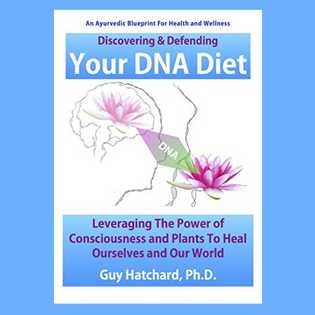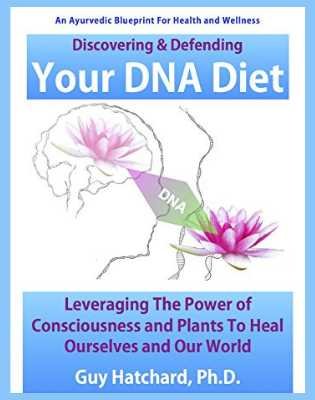Yesterday, the discovery of a oriental fruit fly in Auckland caused a panic and a ban on the movement of fruit and vegetables. Biosecurity New Zealand said that “if the insect was to establish itself in the country, the horticulture industry would suffer massive economic costs”. At the ultimate core of the problem is the particular genetic makeup of this foreign fruit fly, yet somehow, the New Zealand government thinks that deregulating biotechnology experimentation is a very good idea. Good luck with that.
This article is also available as a PDF to download, print, and share and as an audio version.
Many Kiwis have been writing to their MPs expressing concern about the Gene Technology Bill, which is being rushed through Parliament. A smattering of MPs have begun to reply to critics. How do they match up to science and experience?
Reportedly, Hon. Shane Jones, for example, welcomes the Bill and thinks there will be no problem because in his opinion we have all been eating genetically modified organisms (GMOs) for years with no ill effects (???). Hon. Shane Reti, Minister for Health believes the Bill will improve health, boost the economy and enhance farming. When he puts his Health Minister hat on he shouts that we have a national health crisis that urgently needs fixing. So which is it? Are we all eating or injecting biotech and feeling more healthy than ever before or are we all falling sick and dying in greater numbers? You already know the answer. Our hospitals are overcrowded, health insurers are worried sick and our funeral industry is posting record profits. Apparently, no one in Parliament knows why.
The Hon. Scott Simpson, National MP for Coromandel, wrote that the provisions in the Bill for Mandatory Medical Activity Authorisations and Emergency Use Authorisations are only there to oblige the Gene Regulator to be ‘efficient’ (???). This he says will “give the public more choice not less”. I think the word he was searching for in this sentence was not ‘choice’, but might have been more aptly ‘prescriptions’.
I am not sure if MPs are suffering from amnesia or schizophrenia, but haven’t we the public just suffered through five pandemic years? Are we now expected to forget about this? Increasingly, international scientific opinion is shifting to extreme caution about biotechnology, precisely because of the probable origins of the COVID-19 virus and the lack of efficacy or safety of the vaccines.
Here in New Zealand we might have escaped the worst health effects of Alpha and Delta variants because we closed our borders and applied the established principles of quarantine (suffering instead the economic, social and mental health fall out). Despite this, the long term health risks of biotechnology experimentation associated with COVID-19 are still haunting us today in our families, businesses, hospitals and morgues. In fact, policing our borders is precisely what Biosecurity NZ is doing every day to keep dangerous fruit flies and genetic oddities out. The Gene Technology is set to open them right up, the full monty. The wording of the Bill mandates that the New Zealand regulator must reciprocally approve any gene altered medicines and procedures within 30 days of their approval by any two countries overseas.
At the weak heart of the justifications offered for the Bill is the idea that the risks of biotechnology experimentation are manageable and mostly minimal. Precisely the myth that the pandemic has overturned. Hon. Judith Collins, speaking to introduce the Bill to Parliament referred to gene editing as a “very predictable technology”. Not an assessment that fits at all well with events at the Wuhan Virology Laboratory. Collins summed up:
“A defining moment was the invention of the ability to precisely edit individual genes. The CRISPR process was announced in 2012, and it won the Nobel Prize in Chemistry in 2020. That changed everything, because it means that we’re not splicing together genes from different species but that we’re editing existing genes. And more medical therapies aren’t just nice to have; it means more effective and safe cancer treatments, and it means greater hope and quality of life for patients and their families.”
As with most things in science, it takes time to verify claimed benefits. The promises of 2012 have not held up to subsequent scrutiny. A paper published in 2022 in the journal Genome Research entitled “Target-enriched nanopore sequencing and de novo assembly reveals co-occurrences of complex on-target genomic rearrangements induced by CRISPR-Cas9 in human cells” found:
“Extensive genomic disruptions caused by CRISPR gene editing, involving genomic duplication and inversion of the target region, as well as integrations of exogenous DNA and clustered interchromosomal DNA fragment rearrangements. Furthermore, these genomic alterations led to functional aberrant DNA fragments and altered cell proliferation.”
In other words, Collins’ claim of precise fail safe gene editing as a guarantee of safety is just rehashed PR hype and forlorn hope. It is representative of the outdated and incorrect popular science being used by the Coalition to push the commercial gene agenda on the public. Nor is Collins’ level of certainty shared by the recipients of the 2020 Nobel Prize in Chemistry Jennifer Doudna and Emmanuelle Charpentier who invented CRISPR editing. In a 2014 interview reported in Walter Isaacson’s book The Code Breaker Doudna worried:
“Have we created a tool box for future Frankensteins?…Emmanuelle and I, and our collaborators, had imagined that CRISPR technology could save lives by helping cure genetic disease. Yet as I thought about it now, I could scarcely begin to conceive of all of the ways in which our hard work might be perverted”.
This reads a lot differently from Collins’ speech to Parliament. The COVID-19 pandemic has only hammered home concern and tempered the 2012 initial enthusiasm a hundred fold.
In her speech to Parliament, Collins sought to reassure the New Zealand public that the Bill would not force anything on the public saying:
“They can opt in. They do not have to opt out. They’d have to opt in in order to use them GMOs].”
This was Collins’ deceptive rhetoric at its height. Parliament was being misled. A key change that will affect the public was being kept well hidden. If you search the hundreds of pages of the Gene Technology Bill for the word ‘label’, it occurs precisely zero times, yet the Bill supersedes previous HSNO legislation which required labelling of GMOs. In other words, the public will be required to opt in because they will no longer be able to find out whether they are buying, eating or being prescribed biotech products. This is the dirty heart of the Bill which is being welcomed by academia and industry because they know that labelled products and identified procedures will be treated with caution by the public. Something they wish to avoid at all costs.
The Bill proposes that a government appointed regulator will be able to assess risks on our behalf, but it doesn’t specify how they will do so. Behind this sort of legislative vacuum, is an announced government intention that gene editing and experimentation in New Zealand involving crops, microbes, animals and medicines will be going full speed ahead. The regulator, whoever they are, will be well aware of this and if they want to keep their job, they will know what is expected. In the almost complete absence of guidelines, the regulator will become a facilitator.
So what are the risks? Is there such a thing as ‘low risk’ biotechnology? By definition gene editing crosses the cell membrane and edits the genetic command and control system of the whole organism. The complexity of intracellular processes is staggering and involves trillions of elements. The details are little understood. When it comes to human life, you can’t imagine anything that poses a greater risk than gene editing.
Before the pandemic, despite the lessons of smoking, thalidomide, laudanum, asbestos, etc (it is a long list), widespread use and prevalence of biotech experimentation were wrongly believed to be proof of inherent safety. This is no longer the case. As Professor Tim Spector OBE, a Downing Street Advisor and leading geneticist at King’s College London, put it in a November 2024 piece for the UK Telegraph “Labs across the world [undertaking biotechnology experimentation] should face more oversight and be treated with the same seriousness as a nuclear threat.” The Washington Post chimed in: “The nightmare of a biological holocaust is far from fanciful.”
This is not a field to be entered into with gay abandon and hurrah, like a gambler heading for the gaming tables, as Collins seems to think. Human health and life is ultimately at stake here. We are not exaggerating or doom mongering. This is not the time nor is New Zealand the place to open the flood gates to experimental gene editing. The Royal Commission on COVID-19 Phase II has just started to hear evidence on the safety and efficacy of genetically engineered COVID-19 vaccines. They will report in 2026. Collins and the Coalition want to jump the gun. To cap it all they don’t want the results to be labelled. Parliament needs to act on evidence not rhetoric. It should reject the Bill.
For more information view our video on YouTube “The Gene Technology Bill—What Kiwis Need To Know”.
Please make a submission to the Health Select Committee (deadline 17th February). If you feel you need help refer to our Submission Template.
Write to your MP. There are many articles discussing the issues in more depth with references available at HatchardReport.com and https://GLOBE.GLOBAL






